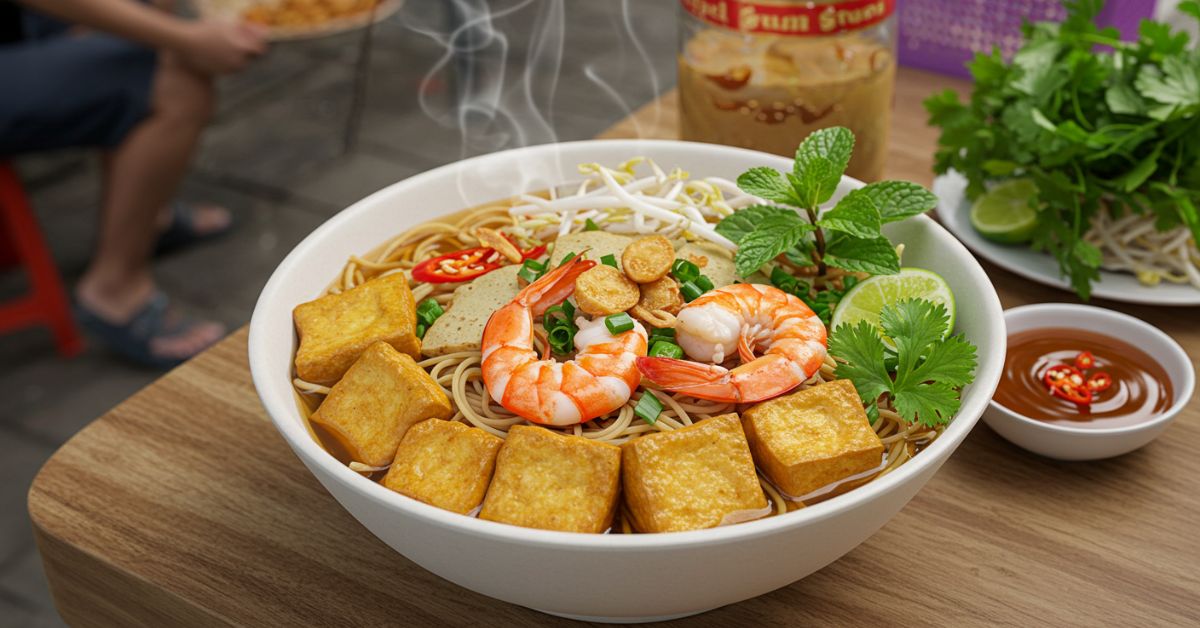In the realm of tropical fruits, the Alphonso mango, sometimes known as the “king of mangoes,” is a variety that is highly esteemed. This fruit has created a name for itself all around the world thanks to its rich flavor, velvety texture, and vivid color, and its appeal only grows each year. However, what is so unique about the Alphonso mango? We will delve further into the world of Alphonso mangoes in this post, examining their history, applications, health advantages, and reasons for their great renown.
An Alphonso Mango: What Is It?
The premium Alphonso mango, sometimes referred to as “Hapus,” is an Indian cultivar. The states of Maharashtra, Gujarat, and Uttar Pradesh are where it is mainly grown. The fruit is prized for its rich scent, sweet taste, and velvety texture. Because of its distinct flavor and succulent flesh, the Alphonso mango is regarded as one of the best types in the world. Alphonso mangoes are easy to eat and enjoy because of their solid, non-fibrous texture, which sets them apart from other mango varieties.
The History and Origins of the Alphonso Mango
The Alphonso mango originated in India in the sixteenth century. According to legend, the mango, which bears the name of a Portuguese viceroy named Alphonso de Albuquerque, was brought by the Portuguese in the sixteenth century. Over time, the mango cultivar became more well-known because of its rich, sweet flavor and aroma.
The Konkan region, which encompasses portions of Maharashtra, Gujarat, and the southern coast of India, has a hot, tropical climate that is ideal for alphonso mango’s cultivation. They are now grown and shipped all over the world, with April through June being the busiest harvesting months. In addition to being consumed fresh, Alphonso mangoes are also processed to make a range of goods, including ice cream, drinks, and mango pulp.
Why Do People Love Alphonso Mangoes?
Alphonso mangoes have gained the title of “king of mangoes” for a number of reasons:
1. Rich Flavor: The sweetness, tanginess, and subtle spiciness of the alphonso mango’s are all perfectly balanced. The meat has a silky, golden yellow texture and a heady, tropical scent that tantalizes the senses.
2. Non-fibrous Texture: Alphonso mangoes have a smooth, fiber-free texture in contrast to many other mango kinds. They are therefore simple to consume and ideal for mixing into juices, smoothies, or desserts.
3. High Nutritional Value: Packed with vitamins A, C, and E, these mangoes are a fantastic complement to a balanced diet. They are well-known for having antioxidants, which strengthen the immune system and enhance skin health.
4. Cultivation in Particular Regions: The Konkan region’s distinct geographical features, such as its rich, fertile soil and ideal climate, contribute to the Alphonso mango’s remarkable flavor and texture. These characteristics set Alphonso mangoes apart from other types cultivated around the globe.
5. Cultural Significance: Alphonso mangoes are more than just a fruit in India; they are ingrained in the country’s culture. They are frequently given as gifts to family and friends on holidays or other special events, and they represent the summer season.
Alphonso Mango Health Benefits
The alphonso mango’s has many health advantages in addition to being a sensory delight. The following are some of this tropical fruit’s main health advantages:
1. Packed with of nutrients
The body benefits from the vital elements that are abundant in Alphonso mangoes. Vitamin C, which strengthens the immune system, is abundant in one serving of alphonso mango’s. The fruit also includes vitamin E, which promotes healthy skin, and vitamin A, which supports eye health.
2. Encourages Digestive Wellbeing
Dietary fiber, which facilitates digestion and helps avoid constipation, is abundant in Alphonso mangoes. These mangoes’ high fiber content promotes intestinal health and helps control bowel motions.
3. Encourages Immune Response
Alphonso mangoes’ high vitamin C content boosts immunity and increases the body’s resistance to illnesses. Eating this fruit on a regular basis will help lessen the intensity and length of common colds and other ailments.
4. Enhances Skin Health
Alphonso mangoes include antioxidants including vitamin A and vitamin E that help shield the skin from UV radiation and free radical damage. These nutrients lessen the visibility of wrinkles and imperfections while promoting healthy, radiant skin.
5. Aids in Blood Sugar Regulation
Alphonso mangoes release sugars into the bloodstream more slowly than other tropical fruits because they have a low glycemic index. When taken in moderation, they can help patients with diabetes maintain healthy blood sugar levels.
6. Promotes Eye Health
Alphonso mangoes’ high vitamin A content promotes healthy vision and lowers the risk of age-related eye diseases including macular degeneration.
Alphonso Mango Varieties: A Quick Comparison
Though the Alphonso mango is unique, there are other varieties of mangoes that share similar characteristics. Here is a comparison chart that will give you a better understanding of Alphonso mangoes and how they differ from other popular varieties:
| Characteristic | Alphonso Mango | Kesar Mango | Himsagar Mango | Langra Mango |
| Taste | Sweet, Tangy, Rich | Sweet, Slightly Tangy | Sweet, Mild | Sweet, Fibrous |
| Texture | Smooth, Non-fibrous | Smooth, Non-fibrous | Smooth, Soft | Fibrous, Soft |
| Color | Golden Yellow | Bright Yellow | Golden Yellow | Greenish Yellow |
| Origin | Maharashtra, Gujarat, Uttar Pradesh | Gujarat, Saurashtra | West Bengal, Odisha | Uttar Pradesh, Bihar |
| Season | April to June | May to July | May to June | June to July |
| Size | Medium to Large | Medium | Medium | Small to Medium |
| Nutritional Content | High in Vitamin C, Vitamin A | High in Vitamin C, Vitamin A | High in Vitamin C, Iron | High in Vitamin C, Potassium |
As the chart shows, Alphonso mangoes are well-known for their exceptional flavor, smooth texture, and high nutritional value, which set them apart from other mango varieties.
How Alphonso Mangoes Are Enjoyed
There are numerous ways to savor Alphonso mangoes. Here are some suggestions for enjoying this tropical treat:
1. Fresh Mangoes: Slice the mango and eat it straight to savor the fruit on its own. Fresh is the finest way to enjoy the rich, tropical flavor and the smooth, juicy texture.
2. Mango Smoothies: To create a cool smoothie, blend Alphonso mango with milk, yogurt, or coconut water.
3. Mango Pulp: Alphonso mangoes are frequently used to generate pulp, which is then added to sweets, drinks, or even ice cream as a topping.
4. Mango Sorbet or Ice Cream: For a delicious treat, freeze the mango pulp and mix it into a sorbet or mango ice cream.
5. Mango Salsa: To make a colorful mango salsa that goes well with grilled meats or shellfish, mix diced Alphonso mango with onions, chiles, and spices.
6. Mango Lassi: A traditional Indian yogurt-based drink made with alphonso mango’s, yogurt, and spices—perfect for a refreshing, sweet beverage.
Mango Lassi: The Export Phenomenon of Alphonso Mango
Alphonso mangoes have become to represent exclusivity and elegance in recent decades. Alphonso mangoes are in great demand all over the world and are primarily exported from India. Because of its restricted availability and exotic nature, the fruit can command a premium price in the Middle East, Europe, and the United States.
Thanks to advancements in logistics and packaging, Alphonso mango exports have increased dramatically. Since import restrictions on Alphonso mangoes have been loosened in many nations, particularly the United States, consumers can now enjoy this fruit king all year round.
Conclusion
Unquestionably one of the best mango kinds in the world, Alphonso mangoes are renowned for their distinct flavor, texture, and health advantages. Alphonso mangoes are a sensory delight, whether they are eaten raw, blended into smoothies, or added to desserts. Their continuing popularity, both domestically and globally, indicates their enduring appeal. Alphonso mangoes are a must-try for anyone who like tropical fruits.
Alphonso mangoes are still a mainstay in kitchens and homes all over the world because of their varied culinary uses, health advantages, and lengthy history. There is no doubting the appeal of this exquisite fruit, which continues to be a reminder of the rich, varied culture of the tropics and a symbol of tropical luxury, regardless of whether you have been a fan for a lifetime or have never tasted it.






